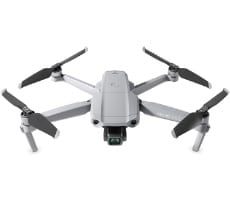Dell XPS 12 (2016) Review: Core m-Powered 2-in-1 Laptop Convertible
Though our review unit was the base $999 edition, which featured a 1080p display protected by Gorilla Glass, an Intel m5-6Y54 processor, 8GB of RAM and a 128GB SSD, the chassis and overall design language is the same regardless of which model you select. What's immediately striking is just how far Dell was able to push the display to the edge on the XPS 12. There's a very thin bezel here -- the thinnest we've seen yet on a slate this size. It speaks to Dell's intentions for buyers to primarily use this machine as a docked laptop, as bezels actually are helpful on e-readers and tablets that grasped from the sides, so your thumb or palm isn't covering much of the screen.
The XPS 12 is an all black affair, with a glossy front side that's broken up by a sole Windows logo along the bottom edge. The rear is home to a matte finish that's grippy -- a useful addition given that the XPS 12 is pretty large as far as tablets go, and is best handled with two hands.
The bottom edge houses a magnetic connector port (meant to sync with Dell's docking keyboard options), and the left edge is home to a pair of USB Type C connectors (one of which is intended for AC power), an SD card slot, and a volume rocker.
The 12.5-inch 1080p panel on our review unit was excellent. Pin sharp, accurate colors, and impressively responsive to touch with a finger or (ideally) Dell's optional Active Pen. Said pen is $50 over and above the base price, but for those who prefer to handwrite notes or find themselves doodling on charts, graphs, etc., it's a worthwhile addition. Artists and creatives that need a relatively affordable way to digitize their sketches should most certainly budget for the pen. It's lightweight, easy to handle, and Dell even includes a cloth holding slot on its keyboard docks to prevent you from losing it.
At 1.8 pounds, the XPS 12 isn't exactly dainty. It's built solid and dense, and it feels like it could take a licking and keep on ticking. (That's likely due to its magnesium alloy unibody construction.) Add on the (included) magnetic keyboard folio and it pushes the weight closer to 3 pounds. That felt a little too heavy for our liking, but credit where it's due: the keyboard folio is sturdy, offers a spacious backlit keyboard with good key travel, and adds a huge trackpad. Our only major gripe on the keyboard folio outside of its heft was its inability to lean the tablet back or forward. It holds the XPS 12 at a specific tilt, and if that doesn't suit you, you're out of luck.
Dell sell an optional thin keyboard folio for $50, bringing the package to $1049 with this option. As you can see above and in our previous video walk-around of the XP12, it has an articulating kickstand much like a Surface. It has a decent feel as well, though key travel is shallower and there is a bit more flex with this option versus the thicker, more rigid standard keyboard folio.












